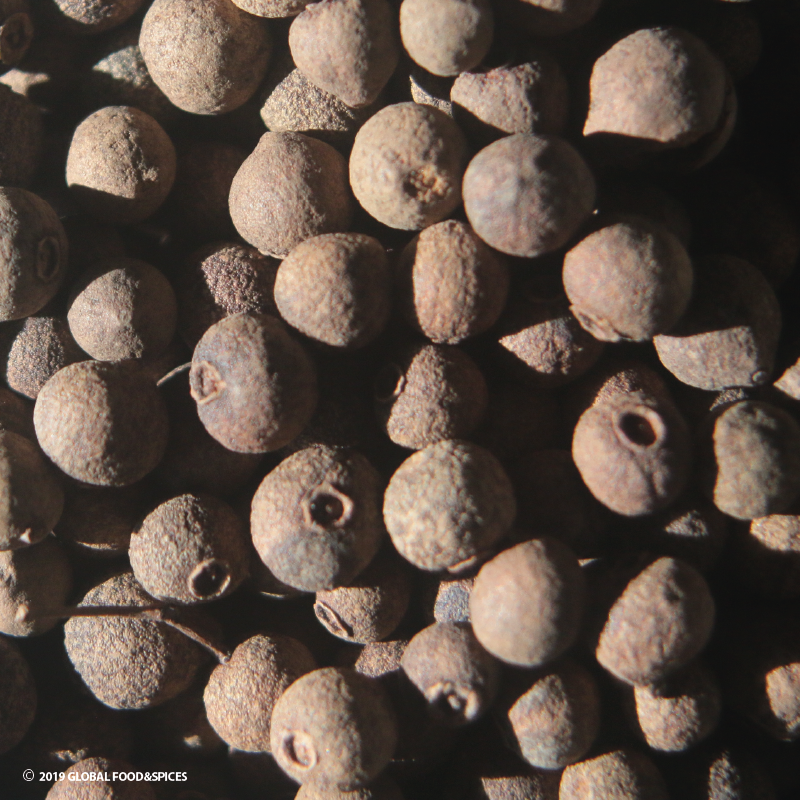FOOD&SPICES
Allspice
Allspice
In stock
Unable to load availability for pickup
Allspice or Jamaican
Permanently reduced in price!
Allspice is the dried, unripe fruit of a shrub in the myrtle family, which at first glance looks very similar to laurel.
Like other pseudo-
In the 17th century, the British did everything they could to control trade by hindering the plant's spread. They knew birds would spoil their plans, and these birds spread the seeds as far as Hawaii. Incidentally, allspice grew not only in Jamaica but in numerous locations in the Greater Antilles. Pimenta diocia still grows only in the Western Hemisphere.
Jamaica is the main producer, accounting for 70% of the global trade. The berry also comes from the tropical regions of the Americas and—our own—from Guatemala, Honduras, and Mexico. After picking, the berries are left to rest for a short time to allow their flavor to develop. Only then are they dried.
Allspice is, of course, a must in Caribbean cuisine, but also in Middle Eastern cuisines, such as Palestinian cuisine. Great Britain has such a special bond with allspice that it's even used in cakes. In France, allspice is also called "quatre épices," after its four main flavors: cloves, cinnamon, nutmeg, and ginger.
Usage
Fresh allspice berries are not used, only the dried ones. These are used as a bay leaf substitute in broths, meats and sausages, with game, and fish (Spanish: escabeche). and in ragouts and marinades. In addition, allspice is very tasty with pear or apple, and in rice pudding! In English cuisine you will find numerous baked goods and desserts with allspice.
Smell and taste
The all-spice character of allspice is evident from the short list of aromatic substances in the berry below:
- eugenol, the characteristic scent of cloves, nutmeg, cinnamon, basil, and bay leaf
- β-phellandrene, a pleasant mint and citrus flavor
- α-humulene, woody, as in hops (humulus lupulus)
- 1,8-cineole, eucalyptol, the refreshing taste of mint (and eucalyptus oil)
- δ-cadinene, like thyme, and
- germacrene D, spicy and woody.
Usage
Use allspice whole (crushed or crushed) or ground.
Features:
- 100% dried fruits of the Pimenta diocia
- origin: Mexico
Assortment
- available in glass (45 grams) and stand-up pouch (no test tubes)
- larger quantities on request
Gift wrapping
- The jar is available in a tasteful gift packaging, consisting of a cube box filled with black tissue paper.
- For an overview of our gift packaging, please refer to the gift packaging section.
General advice
- store allspice in a dark, dry and cool place
- grind allspice at the very last moment, and do not store ground allspice for too long
Save:
- store your allspice in a closed container
- preferably store in a dark, dry and cool place
- best before November 2027 (11-2027)
- This expiration date is an indication
Batch number
The batch number helps us track which batch an item originates from. It's listed on the packing slip and invoice.
Share







